My Year of Bookish Wisdom: 2015
by Miles Raymer
Prefatory Note:
This essay constitutes a new experiment for words&dirt. I’ve recently been inspired by some of my readers, as well as an excellent interview with Maria Popova, to write a reflection on my last year of reading. Many book enthusiasts use the New Year as an opportunity to create “Best Of” lists, but I’ve decided to do something a little more in-depth. I’m calling it a “Year of Bookish Wisdom.” It’s a literary essay that highlights my favorite reads of the year by gathering them under the umbrella of a common theme. Hope you enjoy!
Year of Bookish Wisdom 2015: Perseverance in the Face of Contingency
As a secularist who ascribes to no mystical or religious creed, there are some hard truths I’ve had to face. Many of the ideas and sentiments that animated my childhood and adolescence no longer ring true now that I’m older.
My mother used to comfort me by saying, “Everything happens for a reason,” and it used to work. I used to think and speak about my soul––an immaterial entity within my body that could never decay or die. I used to walk around feeling that my life was intrinsically valuable, and although I’ve never believed in God, I thought the universe was an inherently decent and just place.
No more. The more I learn, the more I run up against a cluster of unnerving truths that hang over the existence of every living thing. Life only has value if we pretend it does. There’s no evidence of a soul that lives on after we die, or that we’ll meet our departed loved ones in “the next world.” Death is final and strikes unbidden. Permanence is an illusion. The universe’s defining quality is indifference, and all things alive or dead are subject to strict physical laws––the only laws that truly matter. No greater power is invested in human happiness or survival. If we choose annihilate ourselves, nothing will stop us. In a word, life is contingent.
Though this may seem a contradiction, we can accept the reality of contingency while also continuing to affirm that life is worth living. Humans are experts at this. A huge portion of our mental and social energies is devoted to constructing reasons for living, and our stories are one of the primary wellsprings from which we draw inspiration. This is the main reason I’ve become so addicted to reading. Reading doesn’t just invigorate my curiosity and imagination; it rescues me from nihilism.
When I look back on my favorite books of 2015, I find that each contains some wisdom about why and how humans persevere in the face of contingency.
Nonfiction
Works of nonfiction are the walls and windows of my one-man classroom; they give structure to my intellect and provide glimpses of the big picture.
My favorite piece of nonfiction this year was Yuval Noah Harari’s Sapiens: A Brief History of Humankind.
I’m always on the lookout for books that condense the entire human story into a few hundred pages, and this one did so quite impressively. Harari is an accomplished Israeli scholar who writes in the tradition of great naturalists like Edward O. Wilson and Carl Sagan. He is a historian rather than a scientist, however, and brings along a specific set of biases and insights that correspond with that background.
In Sapiens, Harari argues that humanity’s evolutionary success is predicated on our ability to “cooperate successfully by believing in common myths…that exist only in people’s collective imagination” (27). In this view, mythology is the bedrock of human survival––a tool of perseverance that provides cultural stability in a dangerous, uncertain world. Harari demonstrates a keen understanding of the human need for a shared narrative, and presents the study of history as a way to “understand that our present situation is neither natural nor inevitable, and that we consequently have many more possibilities before us than we imagine” (241).
Thinkers throughout history have sought to expand the “possibilities before us,” and one such figure was Scottish philosopher David Hume. His classic book A Treatise of Human Nature has made a big comeback in recent philosophical debates, so I decided to take it on this year.
This dense text had me scratching my head more times than I could count, but it also revealed just how far ahead of his time Hume was, especially when it came to problems of identity and perception. Hume is one of the founding fathers of skeptical thought, and taught us that we shouldn’t always trust our senses to accurately identify cause-and-effect relationships in nature. He was also one of the first philosophers to accurately expose the critical influence of emotions on the intellect, paving the way for theories of embodied reason.
Hume had a skeptical and inquisitive nature in a society where dogmatic thinking was the norm. He must have felt very lonely at times, but he managed to persevere, doggedly producing works that would help future generations better understand humanity’s limitations and strengths:
Methinks I am like a man, who having struck on many shoals, and having narrowly escap’d ship-wreck in passing a small frith, has yet the temerity to put out to sea in the same leaky weather-beaten vessel, and even carries his ambition so far as to think of compassing the globe under these disadvantageous circumstances. My memory of past errors and perplexities, makes me diffident for the future. (188)
Admitting our insecurities can be a powerful act of courage, but such courage can be hard to come by in a culture that rewards confidence and scorns doubt. I’ve come to believe that self-doubt is an essential tool for progress, one that we grossly under-utilize. But self-doubt can also lead to paralysis. In recent years, neuroscientists have questioned the validity of free will, demonstrating the causal nature of human cognition and questioning old models of free agency. To dive into this question, I read the fourth volume of Moral Psychology, a series of academic books edited by Walter Sinnott-Armstrong.
This book contains the most complicated, up-to-date exchanges I’ve read on the issue of free will, with many academic voices chiming in to offer insights and critiques. My personal takeaway was that the free will debate won’t be resolved anytime soon, or perhaps ever. Hardline determinism seems probable, but is ultimately impossible to prove. The question of how to understand and allocate moral responsibility is as thorny as ever, but we do best when we think socially rather than individually, as suggested by Michael S. Gazzaniga:
Brains are automatic machines following hierarchical decision pathways, and analyzing single brains in isolation cannot illuminate the capacity to be responsible. Again, responsibility is a dimension of life that comes from social exchange, and social exchange requires more than one brain. When more than one brain interacts, a new set of rules comes into play, and new properties––such as personal responsibility––begin to emerge. The properties of responsibility are found in the space between brains, in the interactions between people. (73)
This insight––that moral responsibility resides between people rather than inside or beyond them––is invaluable. It identifies one’s social sphere as a unique and highly flexible location where loyalty and love are possible but never guaranteed. If we are to persevere, we must do so together.
Hanah A. Chapman and William A. Cunningham expand this notion, indicating that listening to others and revising personal opinions are among our highest moral imperatives:
Each of us has a personal responsibility to actively listen to people who have a different view, both as academics and as citizens of the world. In this way, individual responsibility and intergroup processes may work synergistically, allowing social and intellectual progress to be made, scientific revolutions to occur, and people to change their minds from time to time. (401)
What about robots? Should they be held morally responsible for their actions? Well, the technology for fully autonomous robots is still nascent, but the issue of technological unemployment has recently become one of the hottest topics in technology and economics. This year I read a terrific book about it: Martin Ford’s Rise of the Robots.
Historically speaking, technological unemployment isn’t a new concern. People have been lamenting the automation of human labor for centuries, but new kinds of labor always seem to crop up. For some very good reasons, economists tend to disregard claims that “this time is different.” Ford, however, makes a compelling case that maybe––even probably––this time really is different.
Up until the moment the first aircraft achieved sustained powered flight at Kitty Hawk, North Carolina, it was an incontrovertible fact––supported by data stretching back to the beginning of time––that humans beings, strapped into heavier-than-air contraptions, do not fly. Just as that reality shifted in an instant, a similar phenomenon plays out continuously in nearly every sphere of technology. This time is always different where technology is concerned: that, after all, is the entire point of innovation. Ultimately, the question of whether smart machines will someday eclipse the capability of average people to perform much of the work demanded by the economy will be answered by the nature of the technology that arrives in the future––not by lessons gleaned from economic history. (60-1, emphasis his)
Ford musters ample data to back his claims, and concludes with a well-reasoned and plangent call for a guaranteed basic income for all Americans. It’s time, he asserts, to confront the contingency of modern labor and restore consumptive power to the general public. If we fail to achieve this important goal, we jeopardize not only the future of Americans themselves, but of the American economy as well.
A worker is also a consumer (and may support other consumers). These people drive final demand. When a worker is replaced by a machine, that machine does not go out and consume. The machine may use energy and spare parts and require maintenance, but again, those are business inputs, not final demand. If there is no one to buy what the machine is producing, it will ultimately be shut down. (197)
In a time when eons of human evolution run up against skeptical perspectives, new data and burgeoning technology, it can be tough for individuals and groups to achieve an authentic sense of autonomy and pride. Our common myths are shifting, and keeping up can prove exhausting. That’s why writers like Wendell Berry are so important. In a book of essays called What Are People For?, Berry reminds us of the profound connection between human communities and the soil that sustains them.
A human community must collect “leaves and stories, and turn them into account,” Berry claims. “It must build soil, and build that memory of itself––in lore and story and song––that will be its culture. These two kinds of accumulation, of local soil and local culture, are intimately related” (154). Here we find a shield against contingency: the slow, steady development of natural dependencies between living things of all kinds. The gifts of civilization are often wrapped in suffering, but refuge is possible––in warm homes, quiet forests and gardens, and the hidden spaces where new life is born.
Fiction
If nonfiction is my classroom, fiction is my playground. The creative exchange of human emotion between writer and reader has a special ability to move us, to generate empathy and understanding with nothing more than a string of words. Like a good friend, a good story can help us persevere through the very worst times.
It’s always a joy to rediscover a great novel, especially if it’s one I didn’t care for at first. I’ve been a huge fan of John Steinbeck ever since my Dad gave me The Red Pony in middle school, but I had a tough time warming up to The Grapes of Wrath during my junior year of high school. A decade later, I was ready for another try.
The Grapes of Wrath rubbed me raw this time around. I was astounded and shaken by Steinbeck’s intimate portrait of poverty during the Great Depression, by his inimitable talent for injecting light into situations of extreme deprivation.
Two hundred and fifty thousand people over the road. Fifty thousand old cars––wounded, steaming. Wrecks along the road, abandoned. Well, what happened to them? What happened to the folks in that car? Did they walk? Where are they? Where does the courage come from? Where does the terrible faith come from?
And here’s a story you can hardly believe, but it’s true, and it’s funny and it’s beautiful. There was a family of twelve and they were forced off the land. They had no car. They built a trailer out of junk and loaded it with their possessions. They pulled it to the side of 66 and waited. And pretty soon a sedan picked them up. Five of them rode in the sedan and seven on the trailer, and a dog on the trailer. They got to California in two jumps. The man who pulled them fed them. And that’s true. But how can such courage be, and such faith in their own species? Very few things would teach such faith.
The people in flight from the terror behind––strange things happen to them, some bitterly cruel and some so beautiful that the faith is refired forever. (122)
Steinbeck’s “terrible faith” is neither rapturous nor other-worldly. It is gritty and earthbound, with tatters of divinity––fleeting and mortal. It is the kind of faith that generates gratitude for good fortune and compassion for the downtrodden, that pulls us through the needle’s eye of tragedy, though some surely do not survive the squeeze.
The pleasure of revisiting old authors can only be matched by the discovery of new ones. This year, my great discovery was Alice Munro, the Canadian short story writer who won the Pulitzer Prize in 2013. I was captivated by the stories in her collection Runaway, which imbue seemingly mundane lives with a mysterious and haunting vivacity.
Munro is no stranger to the contingency of human contentment. “Few people, very few, have a treasure,” she writes, “and if you do you must hang on to it. You must not let yourself be waylaid, and have it taken from you” (84). I agree with this sentiment, but would argue that almost everyone has a treasure of some sort. As meaning-makers, we naturally create treasures. Summoning the courage to nourish and defend them, however, is much more difficult; too often we fail to properly appreciate the objects of our affection, and the result is sadness and grief. Munro reminds us all to give thanks for our treasures before they––or we––are gone forever.
Friends are some of our most cherished treasures, and the presence of friendship can be the difference between life and death when contingency threatens. This is certainly the case for Harry Potter, the young wizard who charmed my generation and continues to bewitch children across the globe. I revisited the entire series this year, and was delighted (but not surprised) to find that these stories are just as much fun as I remember.
Harry’s upbringing is a constant battle against imminent death, and although he is uncommonly brave, he is far from exceptional in his wizarding talents. His saving grace is a weapon more powerful than any magic: kindness. Harry makes friends by being understanding and compassionate toward others, and his friends are the only reason he makes it through the many trials of his youth. Harry gains an awareness of this as he matures, as demonstrated in book 5:
I didn’t know what I was doing half the time, I didn’t plan any of it, I just did whatever I could think of, and I nearly always had help…I got through it all because––because help came at the right time, or because I guessed right––but I just blundered through it all, I didn’t have a clue what I was doing. (327)
It’s important to remember that situations where help comes “at the right time” don’t usually result from pure chance. Each day we have the opportunity to plant seeds for the future, to cultivate good relationships with our fellow humans and the surrounding environment. If we do this with consistency and care, we can maintain a reasonable hope that some of those seeds will germinate in times of need.
No seeds can be sown on the high seas, so the intrepid sailors in Herman Mellville’s Moby Dick must look below the waves for their harvest. I’ve been wanting to tackle this whale of a novel for quite some time, but it took the encouragement of a new friend to send it spouting to the top of my reading list.
The ocean is perhaps our most forceful instructor in matters of human contingency. It is the deep place from whence all life came, but to which we can only return as tentative foreigners, ill-suited despite our craft and cleverness. The sailors in Moby Dick are constantly compromised, and some even come to relish the psychological effect brought on by the mighty sea:
Lulled into such an opium-like listlessness of vacant, unconscious reverie is this absent-minded youth by the blending cadence of waves with thoughts, that at last he loses his identity; takes the mystic ocean at his feet for the visible image of that deep, blue, bottomless soul, pervading mankind and nature; and every strange, half-seen, gliding, beautiful thing that eludes him; every dimly-discovered, uprising fin of some undiscernible form, seems to him the embodiment of those elusive thoughts that only people the soul by continually flitting through it. In this enchanted mood, thy spirit ebbs away to whence it came; becomes diffused through time and space…There is no life in thee, now, except that rocking life imparted by a gently rolling ship; by her, borrowed from the sea; by the sea, from the inscrutable tides of God. (134-5)
This passage reveals another strategy for dealing with contingency: self-obliteration. By this I do not mean suicide, but something like a temporary, living death. It’s a state that can be reached in many ways, but one that always results in the dissolution of self––a tumbling of one’s experience into the spiral of the chaotic universe, and the conversion of that chaos into a feeling of oneness with all things, alive or dead, sprightly or quiescent, good or evil. This type of self-obliteration can be addictive, and is therefore best put to use infrequently, but it is also one of the most powerful defenses against the specter of mortality. If you cease to realize you are alive, you cannot die.
If true grit is a prerequisite for survival on the ocean, then something even more audacious is displayed by those who venture into space. Neal Stephenson’s Seveneves is not only my favorite of his novels to date, but also one of the finest pieces of science fiction I’ve ever read.
Despite the trendiness of apocalyptic narratives, Seveneves is fresh, fun and brilliant. When Earth’s mysteriously shattered moon threatens to render the planet’s surface uninhabitable for five millennia, a small group of astronauts must desperately get enough people and resources into orbit to perpetuate the human race. Stephenson’s depiction of this struggle is both realistic and idealistic; our heroes are imperfect and petty, but also incomparable in their talents and ambitions. They are the best of us––nerds with the right stuff.
We need brains, is the bottom line…We’re not hunter-gatherers anymore…What keeps us alive isn’t bravery, or athleticism, or any of those other skills that were valuable in a caveman society. It’s our ability to master complex technological skills. It is our ability to be nerds. We need to breed nerds…We’re all nerds now. We might as well get good at it. (560)
Stephenson makes it clear that the anthropocene, no matter what form it ultimately takes, will be the age of intellect. If we plan to continue our defiance of existential threats both internal and external, we must bring every bit of ingenuity and creativity to bear on our most pressing problems. We must be willing to rethink our strategies, retool our infrastructure, and regard our interpersonal bonds as the foundation of the future.
Most lives, of course, never reach escape velocity. For many people, just making it through the day can be a great accomplishment. Some suffer from wounds that will never heal. Such is the case with Jude, the protagonist of Hanya Yanagihara’s A Little Life.
This is the best novel I’ve read in years, a tour de force of emotional and narrative artistry. Reading this book is like being punched in the gut over and over, with just enough time to catch your breath in between impacts. It is a disturbing tale of abuse and hardship so severe that the the hope of recovery is irretrievably extinguished. Jude is the unhappy recipient of this predicament, as seen here through the eyes of Willem, his best friend:
He had looked at Jude, then, and had felt that same sensation he sometimes did when he thought, really thought of Jude and what his life had been: a sadness, he might have called it, but it wasn’t a pitying sadness; it was a larger sadness, one that seemed to encompass all the poor striving people, the billions he didn’t know, all living their lives, a sadness that mingled with a wonder and awe at how hard humans everywhere tried to live, even when their days were so very difficult, even when their circumstances were so wretched. Life is so sad, he would think in those moments. It’s so sad, and yet we all do it. We all cling to it; we all search for something to give us solace. (621)
For those willing to venture into this coal mine of a novel, there are diamonds to be prised from the blackness––dazzling moments of affection and respite that overwhelm and edify. Yanagihara’s great gift to readers is her understanding that miracles aren’t supernatural events, but rather little victories won in defiance of agony. Again, Willem observes:
What about life––and about Jude’s life, too––wasn’t a miracle?…Wasn’t friendship its own miracle, the finding of another person who made the entire lonely world seem somehow less lonely? Wasn’t this house, this beauty, this comfort, this life a miracle? And so who could blame him for hoping for one more, for hoping that despite knowing better, that despite biology, and time, and history, that they would be the exception, that what happened to other people with Jude’s sort of injury wouldn’t happen to him, that even with all that Jude had overcome, he might overcome just one more thing? (573)
The cultivation of this kind of hope, which is both valorous and foolhardy, is the signature of a shift in one’s life, in one’s entire being. It allows us to face down contingency and say, Not yet, not yet will you take this from me. I’ve come too far and worked too hard, and I will have my happiness for this moment, and for as many moments as I can wrest from the clutches of death.
This is not an exemption from contingency, nor a transcendence of it. It is a fullness of presence in which the body of a loved one signifies everything worth striving for: “I try to be kind to everything I see, and in everything I see, I see him” (720).
The ultimate defense against contingency is the perseverance that only love can bestow.
Conclusion: The Boon of Bookishness
It is with great humility that I realize how unusual it is for someone to have the time and energy to do as much reading and writing as I do, especially when unaccountable to any authority except my own interests. I consider myself the recipient of an inestimable fortune that I cannot justify. As a small form of recompense, I try to read and report my experience with clarity and honesty. I have become an agent of what Neal Stephenson calls “bookishness”:
They are out there somewhere, the book-readers in their millions, and they are talking to each other…They know how to find each other and to have the long conversations that nourish their bookish souls…If bookishness were just a niche pastime, like stamp collecting or waveboarding, none of this would really matter. But it’s more than that. It is the collective memory and the accumulated wisdom of our species. (Some Remarks, 269-70)
If you’re out there and have found this essay for whatever reason, I hope it nourished something in your own bookish soul.

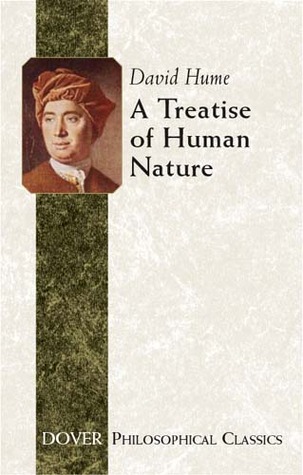


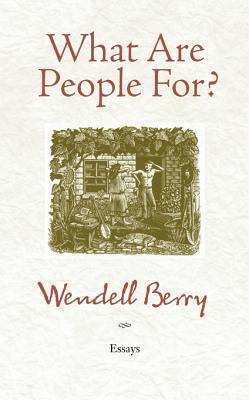
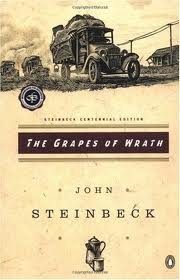
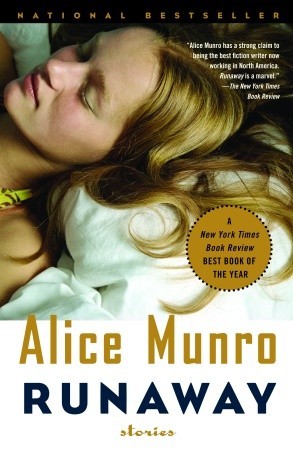

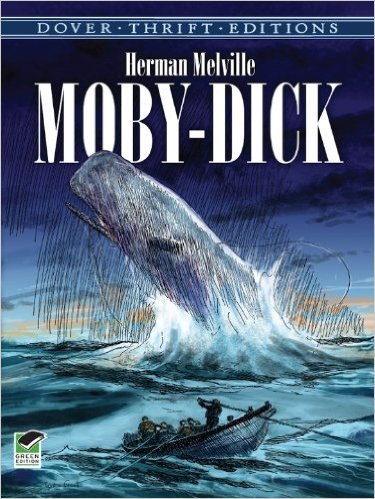
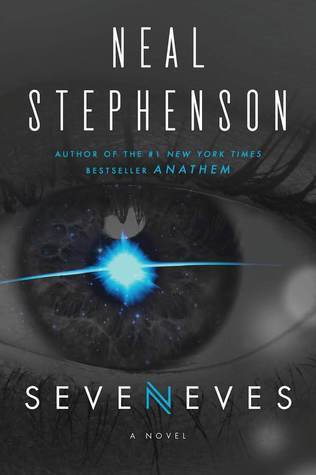
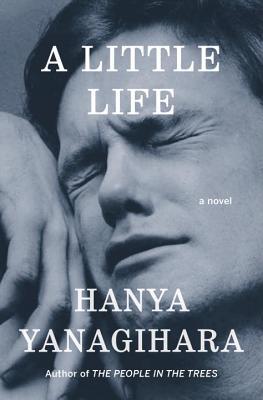
I love the common thread you wove around these books, and the obvious joy you take in experiencing these books at multiple levels and with an eye to their connections between each one. I’m so glad to have the highlights of the year all in one place, and to have a mapped connection between Harry Potter, David Hume, and Wendell Berry… not just because these were books in your year, but because the human themes you explore so beautifully here.
I can’t wait to see what 2016 holds for you!
Thanks so much for reading, and for the comment! I was lucky to enjoy such a great year of reading. Looking forward to catching up soon!
Splendid! It’s like a readable photo album of places traveled in a year’s time, and with books, we can travel far and wide. Creating space in our lives to reflect upon all that we have learned in a year’s time and beyond seems the best way to cultivate wisdom. Well done Miles:)
Thanks for your comment! Looking forward to discussing this over beers later today.
lovely. couldn’t say it better than Katie and Barnabas…